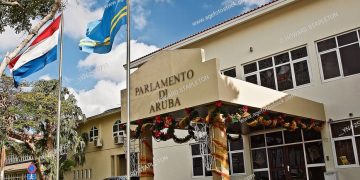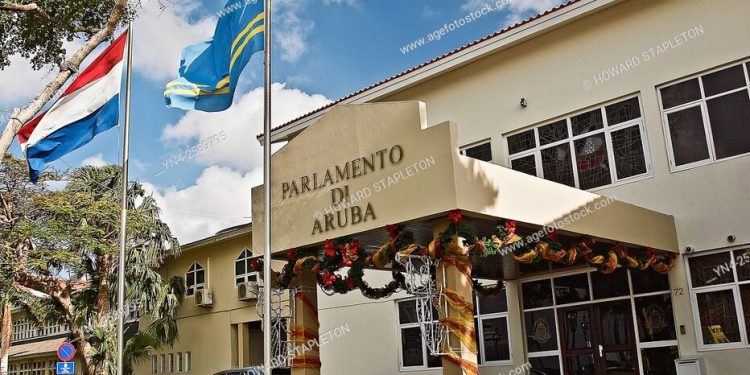ORANJESTAD – The financial situation of Aruba, due to the corona crisis, is troublesome. Public revenues have fallen by 80%, and costs have risen sharply because suddenly financial support must be provided to prevent 37 thousand people from losing their jobs. There is no guarantee that there will be money soon to pay salaries, whether for health care or for pensions. The government of Aruba is diligently looking for money, in the United States and the Netherlands.
Government costs, especially salaries, must also be reduced. Prime Minister Evelyn Wever-Croes has informed the unions that the government will reduce salary costs for the period May-December 2020 as follows: Ministers, office holders, advisers and directors of government entities are surrendering 20%. Officials and employees of subsidized foundations and government entities contribute 12.6%. Pensioners of the APFA give 4.5%.
The government has already met twice with the unions, although there is no general consensus, the proposal is supported by the majority of unions under certain conditions, such as:
Cost of living has risen; the government has decided to carry out stricter price controls and to sit down with the port company and importers to reach agreements. Agreements have also been made with the banks that they will take account of the lowered wages, on a case-by-case basis.
Government entities must also surrender, on which the government has decided to instruct the entities to reduce costs, and a WEVER-CROES standard is introduced, which is a maximum salary for directors of government entities of 130% of the salary of the prime minister. This is a structural measure. In addition, salaries will have to be cut during this crisis, as stated above. The fee for the supervisory directors will also be reduced by 20%, although several council members have already indicated that they will surrender 100% during the crisis.
The government should cut more costs, especially with regard to advisers, and the government has indicated that it has cut substantially from the ministers’ offices since the appointment of this cabinet in 2017, with now working with a maximum number of employees and salaries according to officials run pay grades. With this, Afl. 27 million have been saved.
In addition, the government has indicated that almost simultaneously with the outbreak of the Covid-19 pandemic, all ministries and their departments have been asked to keep their spending at the minimum for 2020. This means that planned policy proposals and projects will no longer take place in the current year.
In addition, Article 18 paragraph 2 CV1989, the obligation freeze, has also been activated. The first round of austerity has also been applied, with Afl. 9.6 million has been saved on travel and accommodation costs, expert advice, renting office inventory, writing/desk needs, training and course fees, leasing e / o lease vehicles and fuel, business supplies, shipments, and returns. The Social Crisis Plan for 2020 with Afl. 10 million cut.
This saves Afl. 91 million. As soon as the shelter-in-place is over and the department heads are back at work, they will be able to indicate where else they can cut. Prime Minister Wever-Croes has not yet reached an overall consensus, but cannot wait much longer. There is support for the measures among the majority of the unions.
This shows Aruba decisiveness and solidarity in difficult times.


















